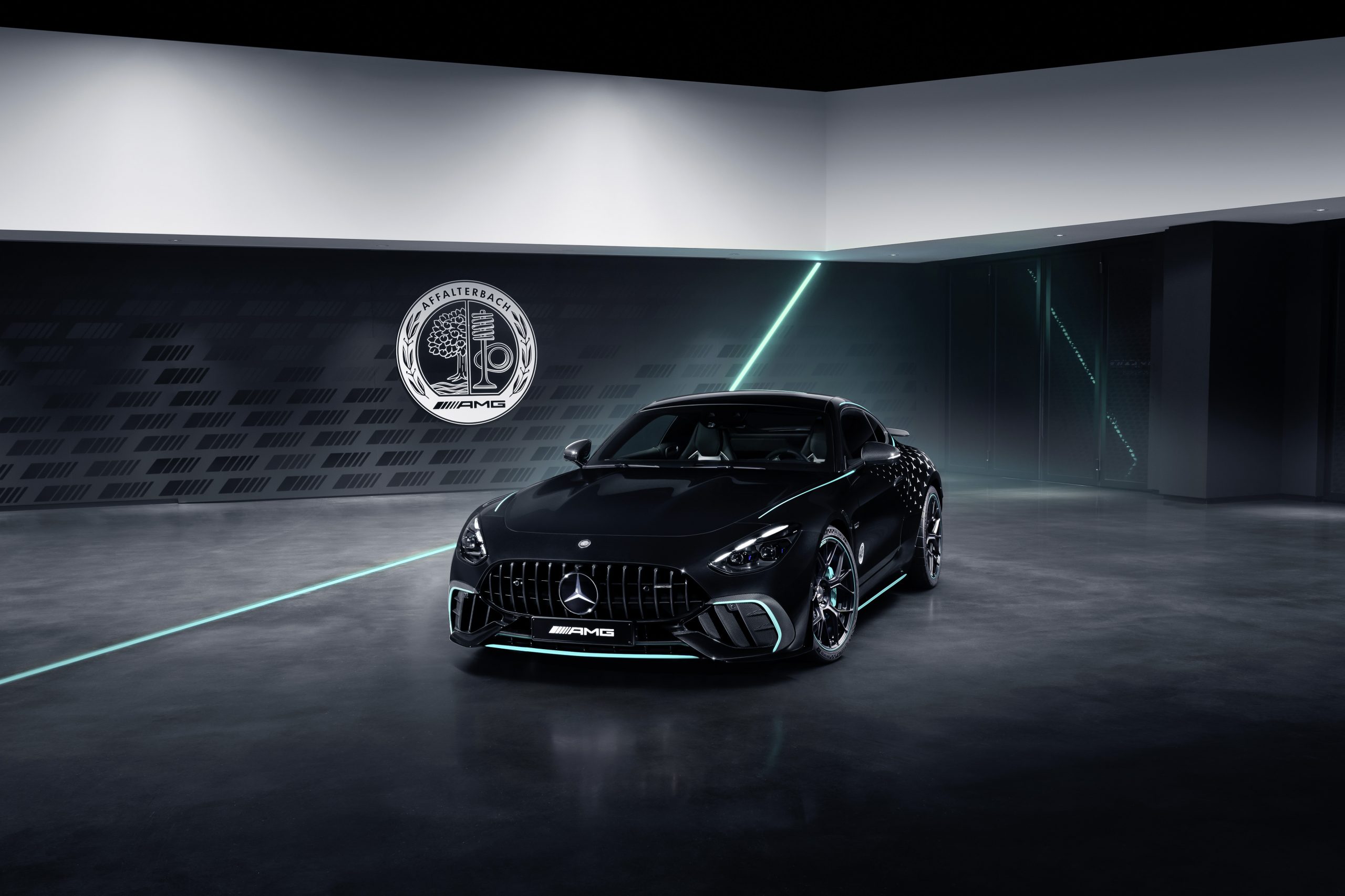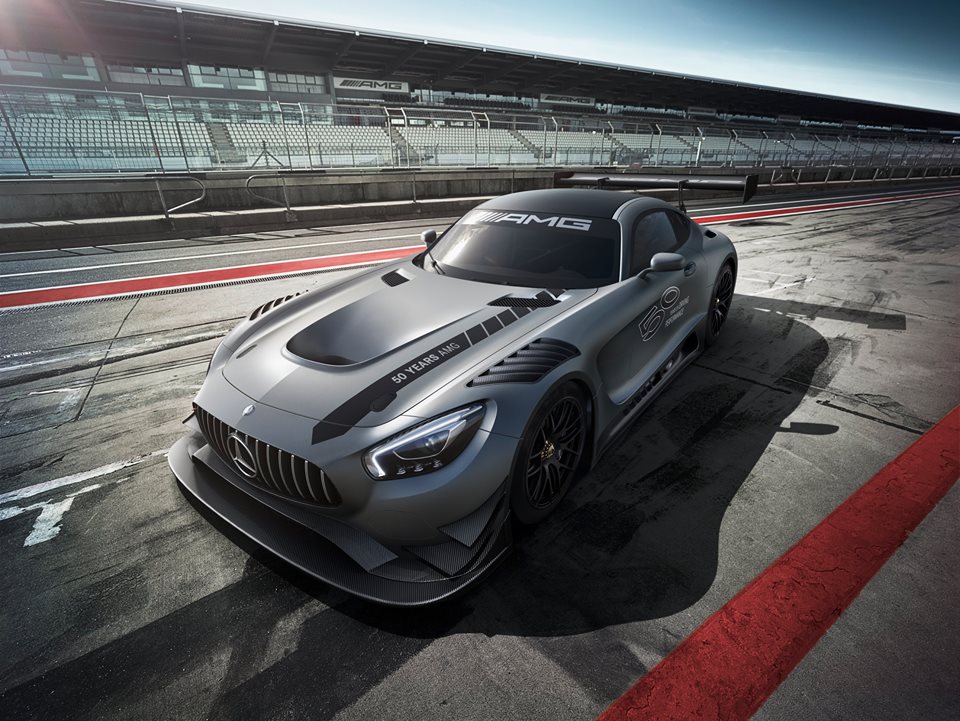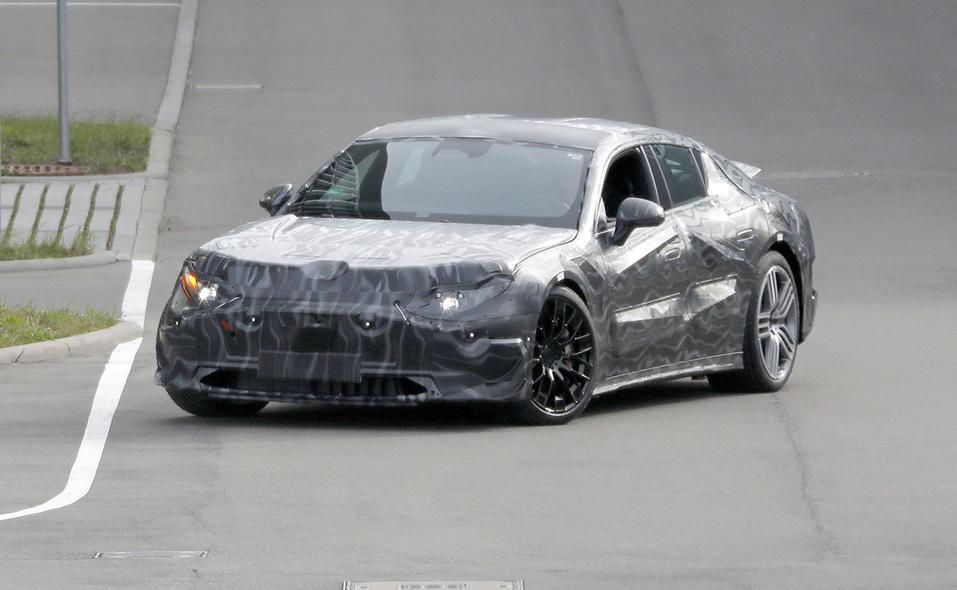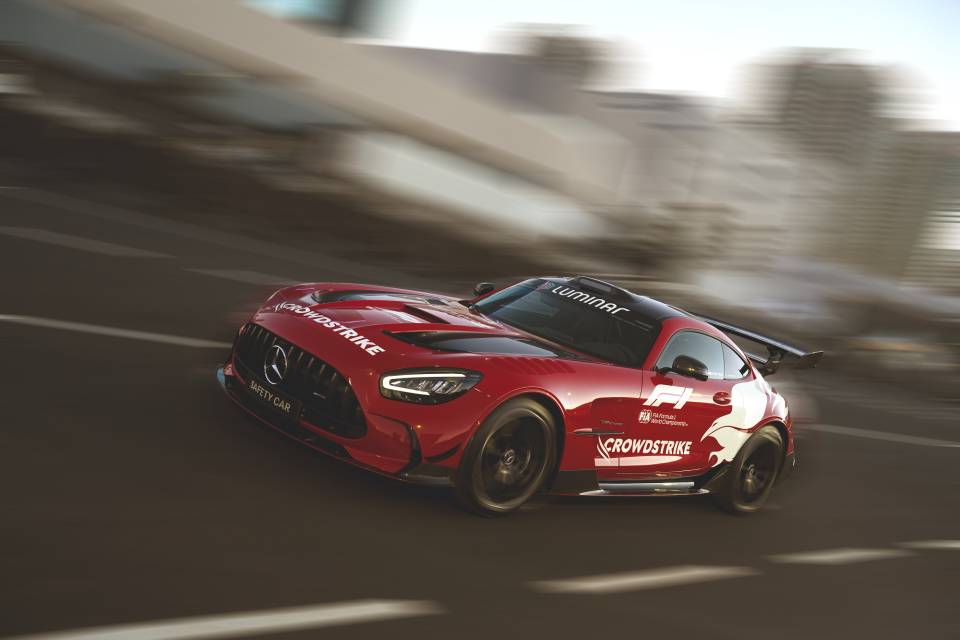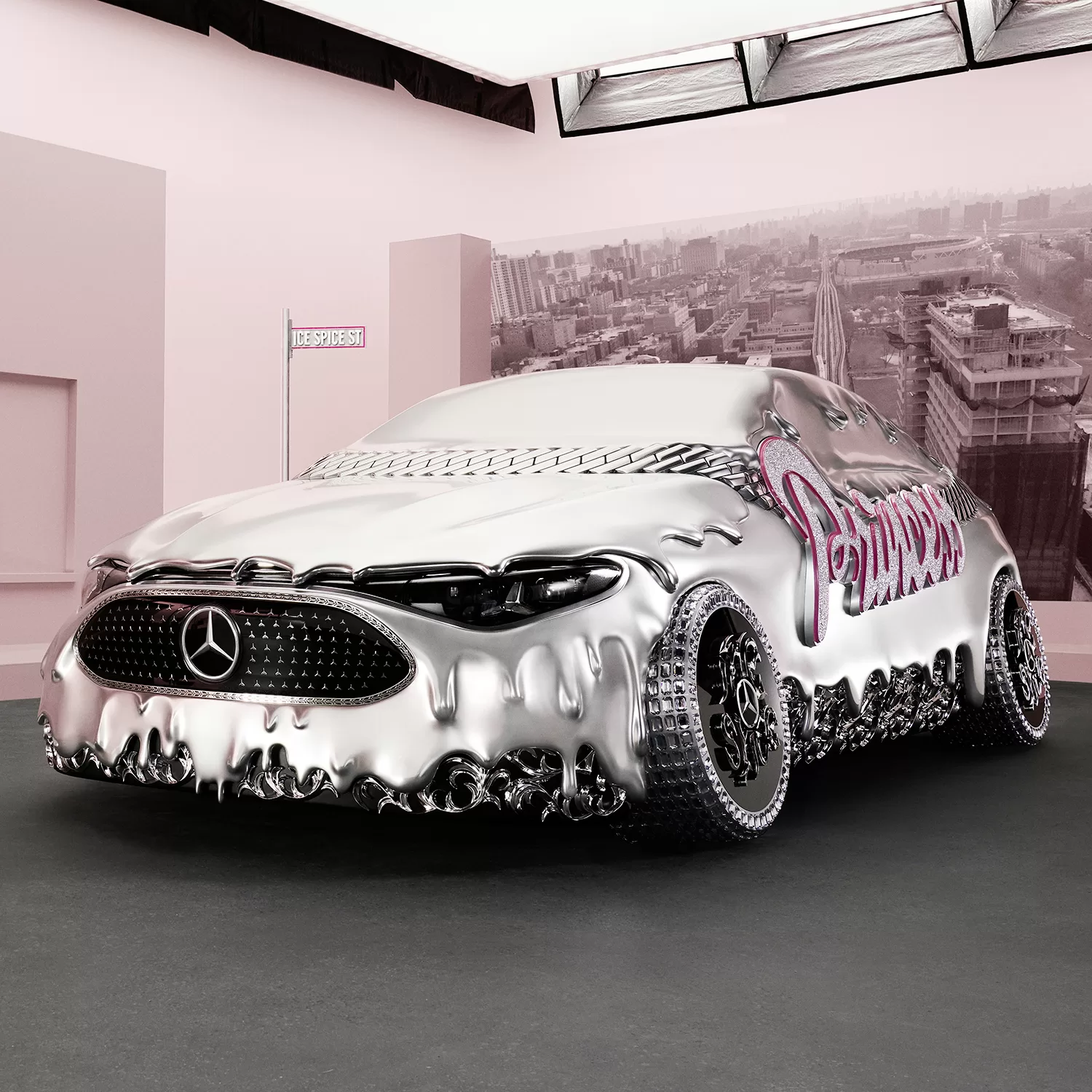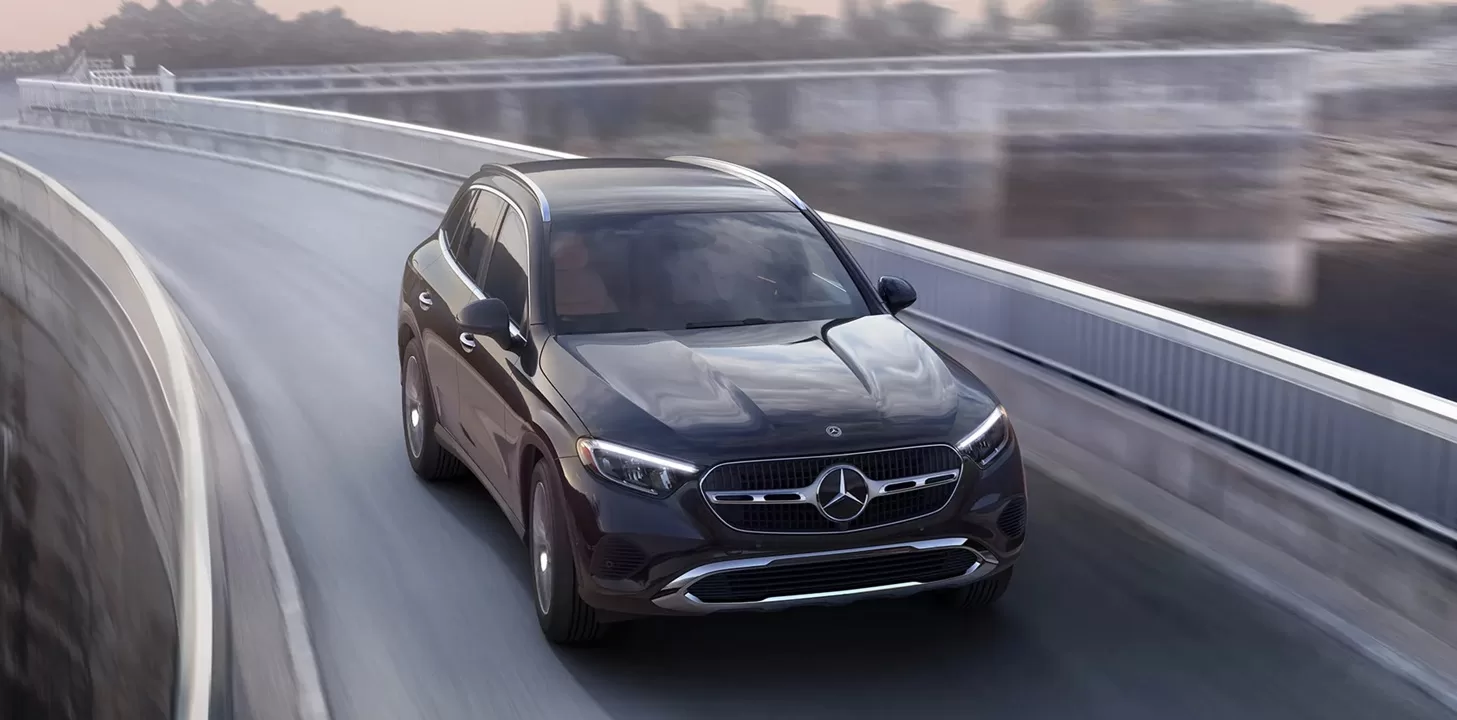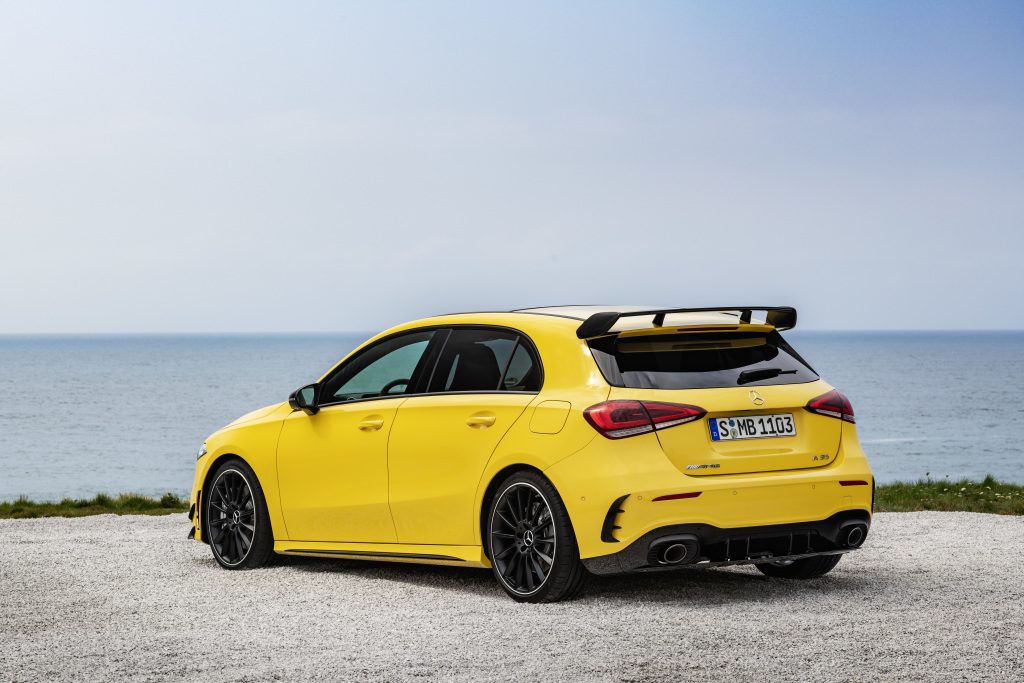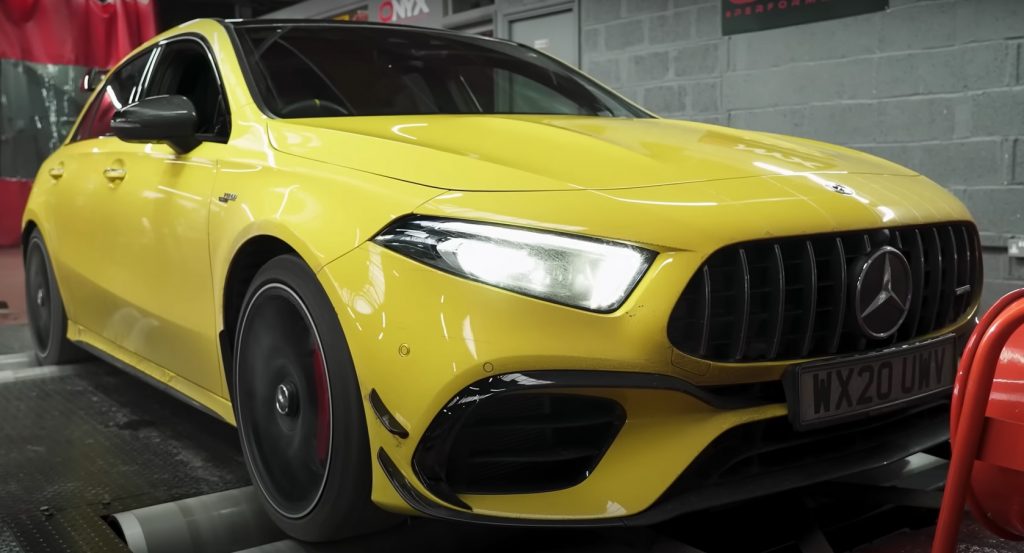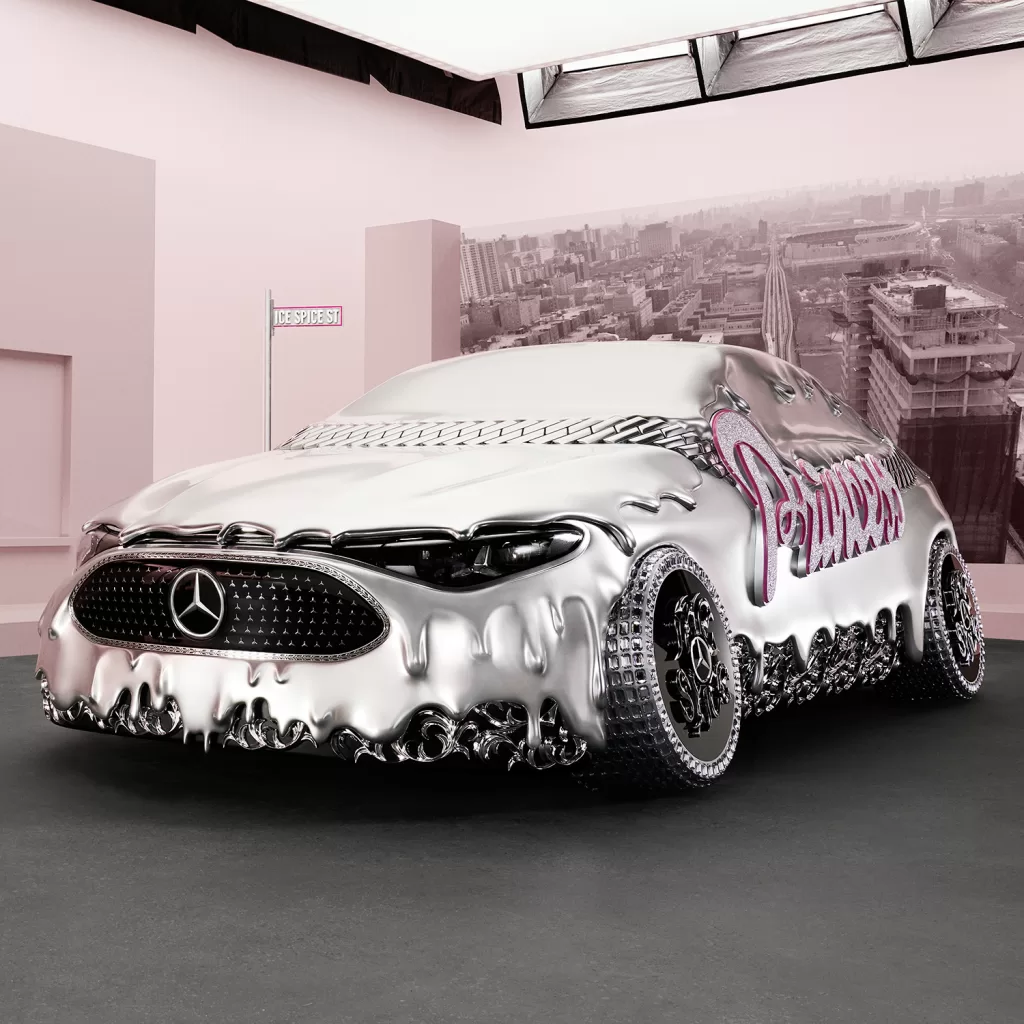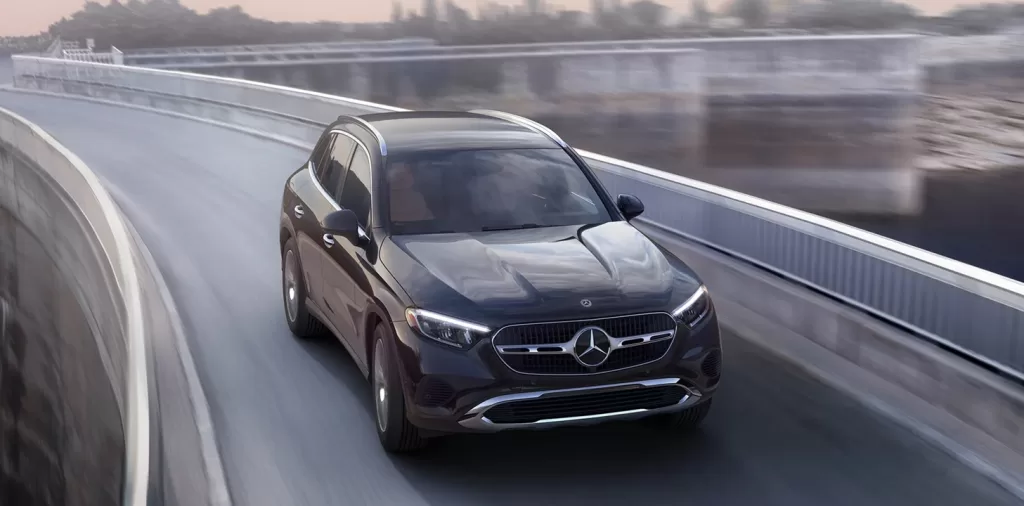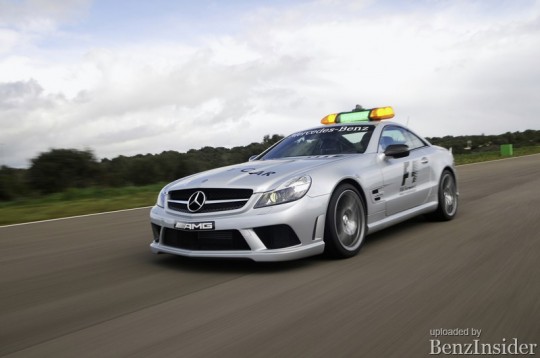
As you might have seen this weekend at the Australian Grand Prix in Melbourne, The SL 63 AMG, as the Official F1 Safety Car, and the C 63 AMG Estate, as the Official F1 Medical Car, are to continue to help ensure maximum safety, this time for the 2009 Formula 1 season. AMG, the performance brand of Mercedes-Benz, will be on duty with the two specially prepared high-performance vehicles at all 17 of the new season’s Formula 1 races. The specialists from the AMG PERFORMANCE STUDIO are responsible for the development, production and servicing of the vehicles.
The Official F1 Safety Car is always deployed whenever the safety of a race is threatened by accidents, adverse weather conditions or other hazardous situations. Sitting behind the wheel of the exceptional SL 63 AMG will be Bernd Maylà¤nder (Germany, 37 years of age). After receiving instructions from the race management, the former DTM driver must go to the head of the Formula 1 field and safely guide the world’s fastest racing drivers around the circuit. Fast lap times are a must for the Safety Car, because otherwise the Formula 1 engines would overheat – and their tyres and brakes would also cool down excessively.
Check out the entire gallery
As in 2008, the role of the Official F1â„¢ Safety Car is also being fulfilled during this year’s new season by the Mercedes-Benz SL 63 AMG. Its distinctive driving dynamics are a basic requirement for its challenging Formula 1 assignment:
the AMG6.3-litre V8 engine has a power output of 386 kW/525 hp, providing acceleration from zero to 100 km/h in 4.4 seconds. A newly developed AMG sport exhaust system with larger pipe diameter and special rear silencers allows the high-revving AMG naturally aspirated engine to breathe even more freely – and gives it an even sportier sound. Outstanding driving dynamics are guaranteed by the newly developed AMGSPEEDSHIFT MCT 7-speed sports transmission with column shift, which makes it possible to change gear in just 100 milliseconds.
Special coil-over suspension and cooling measures
Optimum racetrack performance is guaranteed thanks to the specially developed coil-over suspension, which can be customised to a specific racetrack by means of individual suspension setup configurations. The combination of 3-stage ESP® and rear-axle differential lock with 30 percent locking effect provides optimum traction in all weather conditions. In the interests of reliability even at tropical ambient temperatures, the vehicle incorporates large-size, additional coolers for engine oil, transmission oil, coolant and power steering.
Special cooling measures and heavy-duty composite braking system
The front and rear axles feature 19-inch extra-light AMGforged light-alloy wheels. The 8.5-inch (front) and 9.5-inch (rear) rims are fitted with tyres of size 255/35 and 285/30, respectively. The design of the rims, with their intricately styled double spokes, optimizes both the cooling of the highly stressed braking system and the specially engineered cooling-air flow. Optimum fatigue resistance and best-possible deceleration values are among the self-evident characteristics of the AMGhigh-performance braking system, which is equipped all round with internally ventilated composite brake discs. The front axle is fitted with six-piston fixed callipers and discs of size 390 x 36 millimetres, while the rear axle features four-piston fixed callipers with brake discs of size 360 x 26 millimetres.
220 kilograms lighter than the series-production vehicle thanks to targeted lightweight design measures
Thanks to targeted lightweight design measures, the SL 63 AMGSafety Car weighs in lighter than its series-production counterpart – and this is despite additional cooling measures, lighting system and communications equipment. The engine bonnet, front and rear aprons, front wings and luggage compartment lid are produced from carbon-fibre-reinforced plastic, a material that has been tried and tested in motorsports. Since the Safety Car is always driven with its top up, the vario roof has also been dispensed with. The result is a weight reduction of 220 kilograms, with the Safety Car weighing in at just 1750 kilograms (with a full tank and without occupants).
Apart from its special roof attachments and F1 logos, the SL 63 AMG Official F1â„¢ Safety Car is distinguished from the standard-production AMG high-performance roadster by a front apron with larger cooling-air openings. A prominent feature at the rear of the vehicle is the modified diffuser insert in the rear apron, which incorporates the active rear-axle cooling, this compensating for temperature peaks in the highly stressed differential housing. The white LED flashlights in the headlamps and tail lamps are always in operation whenever the vehicle is in use and have a neutral signalling function. The number plate with Safety Car lettering on the rear is illuminated by means of almost 700 LEDs and guarantees even greater safety, particularly in rain or darkness.
Interior with undiluted motorsport flair
The inside of the Safety Car is dominated by an atmosphere of undiluted motorsport flair. The workplaces of Bernd Maylà¤nder and his co-driver feature two AMGsports bucket seats with 4-point seatbelts, trim parts in real carbon fibre, black leather appointments and the AMG performance steering wheel with its 365-millimetre steering wheel rim, flat underside and AMGaluminium shift paddles. The centre console is equipped with two monitors to enable the crew of the Safety Car to supervise the action on the racetrack, while the two-way radio system allows them to remain in contact with the race management.
C 63 AMG Estate: the Official F1â„¢ Medical Car
In addition to the Safety Car, another permanent feature of each Formula 1 race is the C 63 AMG Estate Official F1â„¢ Medical Car. At the start of every Grand Prix, the high-speed AMGestate car follows the Formula 1 field on the first lap. This is because the first lap represents a critical phase of the race in which the Formula 1 vehicles are especially tightly bunched. In the event of an accident during the race, the Medical Car is the first vehicle on the scene and is able to guarantee the fastest possible emergency treatment.
This C 63 AMG Estate has excellent credentials for such a challenging task, where literally every second counts: the high-performance estate vehicle is powered by the AMG 6.3-litre V8 engine, which delivers 336 kW/457 hp and 600 Newtonmetres of torque. The AMG sport exhaust system boasts larger pipe diameters and new rear silencers, this resulting in a considerably more distinctive sound that comes out of the two chrome-plated dual tailpipes. In order to guarantee greater reliability, the cooling of coolant, engine oil, transmission oil and power steering has been optimized, this being visible also from the new AMG front apron with its considerably larger cooling-air openings. The power from the engine is transmitted via the AMG SPEEDSHIFT 7G-TRONIC PLUS, which blips the throttle when changing down for even greater smoothness. Perfect traction is guaranteed by the combination of 3-stage ESP® and differential lock with 35 percent locking effect.
Coil-over suspension and AMG high-performance braking system
An adjustable coil-over suspension and 19-inch AMG light-alloy wheels, measuring 8 and 9 inches wide and fitted with tyres of sizes 235/35 (front) and 255/30 (rear), respectively, help to ensure perfect contact with the road. The powerful AMGhigh-performance braking system, with its internally ventilated and perforated composite brake discs on the front axle, guarantees extremely short stopping distances. The Official F1â„¢ Medical Car differs from the standard-production C 63 AMG Estate with its new AMGfront apron with larger cooling-air openings as well as special brake cooling. The active cooling of the rear-axle differential is integrated into the diffuser insert at the rear. Like the Safety Car, the Medical Car, too, draws attention to its special role on the track through its F1 logos, roof bar and strobe-like LED flashlights at front and rear. Enhanced visibility in darkness or bad weather is ensured by the LED-illuminated number plate with Medical Car lettering on the boot lid tailgate.
The Official F1â„¢ Medical Car is driven by racing driver Alan van de Merwe (South Africa). His co-driver is Dr. Gary Hartstein (Belgium), who is the official FIA Grand Prix Chief Medical Officer. Both of them are accommodated in AMGsports bucket seats with 4-point seatbelts, as are the two medical assistants in the rear. Two monitors in the centre console help the crew to supervise the action on the racetrack, while an on-board two-way radio system is responsible for communication with the race management. The functional feel of the interior is marked by black leather appointments and aluminium trim parts. The 365-millimetre AMG performance steering wheel with its flat underside on the steering wheel rim and AMGaluminium shift paddles guarantees perfect control over the vehicle. With its unrivalled volume of 485 litres, the luggage compartment offers ample space for the full complement of emergency equipment, including defibrillator and respirator.
Transfer from motorsport to series production
Both the SL 63 AMG Official F1â„¢ Safety Car and the C 63 AMG Estate Official F1â„¢ Medical Car impressively document the transfer from motorsport to series production. With reference to the example of the SL 63 AMG, numerous components in the Safety Car are available straight from the factory. The AMGPerformance Package includes, for instance, the 360-millimetre composite disc brakes on the front axle; the rear-axle differential lock; the 19-inch AMG light-alloy forged wheels and the AMG performance steering wheel. The same is true of the Medical Car: the AMG Performance Package for the C 63 AMG (saloon and estate models) includes, for example, the composite disc brakes on the front axle, the rear-axle differential lock, the AMG performance suspension and the AMG performance steering wheel in nappa leather/alcantara. The 19-inch AMGlight-alloy wheels are optionally available.
AMG PERFORMANCE STUDIO responsible for development
The development, track-testing and production of the two Safety Cars and the two Medical Cars – in both cases, there is one emergency vehicle and one replacement vehicle available – is carried out by the specialists from the AMG PERFORMANCE STUDIO in close collaboration with the test team for AMGoverall vehicle development. This involves drawing on over 40 years of know-how from the field of motorsport as well as the wealth of experience in the design of high-performance sports automobiles. Numerous test drives were carried out on various Formula 1 racetracks in order to tune the suspension and verify all the systems and components. Two highly-qualified AMG technicians are also on hand to take responsibility for the deployment of the Safety Car and Medical Car at all 17 Formula 1 races.
Since 1996: eight generations of safety cars from AMG
For 12 years AMGhas continuously provided the Official F1â„¢ Safety Car and the Official F1â„¢ Medical Car in the top flight of international motorsport.
All AMG Safety Cars at a glance
1996: C 36 AMG (W 202)
from 1997: CLK 55 AMG (C 208)
2000: CL 55 AMG (C 215)
from 2001: SL 55 AMG (R 230)
2003: CLK 55 AMG (C 209)
from 2004: SLK 55 AMG (R 171)
from 2006: CLK 63 AMG (C 209)
from 2008: SL 63 AMG (R 230)
All AMG Medical Cars at a glance
1996: C 36 AMG (W 202)
1997: C 36 AMG (W 202); E 60 AMG (W 210)
from 1998: C 55 AMG Estate (S 202)
from 2001: C 32 AMG Estate (S 203)
from 2004: C 55 AMG Estate (S 203)
from 2008: C 63 AMG Estate (S 204)
As early as 1984, an AMG E-Class Coupe with V8 engine was used occasionally as the Medical Car. Consequently, the activities of the Affalterbach-based company are also evidence of Mercedes-Benz’s long-standing commitment to Formula 1.


